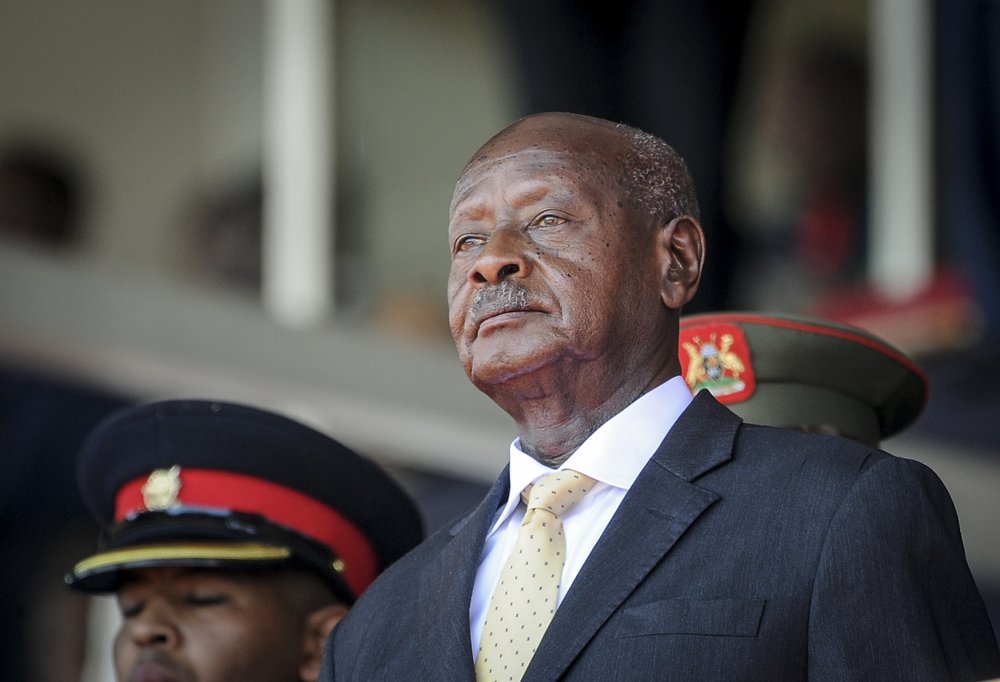In a move that is set to trigger global condemnation, President Yoweri Museveni of Uganda has inked one of the world’s severest anti-LGBTQ legislations, disclosed a spokesperson this Monday.
Uganda, like more than 30 African nations, had already classified same-sex relationships as illicit, but this newly minted law pushes the envelope, intensifying the severity of punitive measures for lesbian, gay, bisexual, transgender and queer individuals.
The law calls for capital punishment for what it refers to as ‘aggravated homosexuality’, which includes homosexual intercourse by an HIV-positive individual, and a two-decade imprisonment for promoting homosexuality. The Ugandan leader’s endorsement of the bill was initially broadcasted by the parliamentary speaker Anita Among via Twitter.
“If the speaker has announced, then that’s true he has signed,” affirmed Museveni’s spokesperson Faruk Kirunda, communicating with Reuters.
Ugandan authorities have conceded that the nation, recipient of billions in foreign aid annually, could face potential sanctions owing to this legislation.
Upon Museveni’s signing of a comparatively less oppressive anti-LGBTQ law in 2014, Western governments responded by suspending portions of aid, enforcing visa restrictions and scaling back security cooperation. That law, however, was revoked within months by a domestic court, citing procedural issues.
In the previous month, the US government expressed concerns about the implications of the new legislation on their operations in Uganda, particularly the flagship HIV/AIDS programme.
Organisations including the European Union, United Nations and a plethora of international corporations have denounced the legislation.
Despite external pressures, Museveni and fellow political leaders have prompted lawmakers to stand firm.
“With a lot of humility, I thank my colleagues the Members of Parliament for withstanding all the pressure from bullies and doomsday conspiracy theorists in the interest of our country,” commended speaker Among in her statement.
The law’s passage in March sparked palpable trepidation within Uganda’s LGBTQ community. Numerous individuals closed their social media accounts and sought refuge in safe houses, while others are exploring options to leave Uganda entirely.
“The Ugandan president has today legalised state-sponsored homophobia and transphobia,” lamented Clare Byarugaba, a Ugandan rights activist. “It’s a very dark and sad day for the LGBTIQ community, our allies and all of Uganda.”
Activists have pledged to contest the law in court.
Despite Museveni’s staunch opposition to LGBTQ rights, he had returned the original bill, approved by parliament in March, back to the lawmakers, suggesting they moderate certain provisions.
On May 2, the revised bill, with only minor amendments and preserving the majority of the original legislation, was passed. The adjusted version clarified that mere identification as LGBTQ is not a crime and revised a measure that obligated people to report homosexual activity to necessitate reporting only when a child is involved.
A group of international corporations, including Google, have criticised the legislation, warning it would place those with operations in Uganda in an untenable position and impact the country’s economy adversely.
Following the bill’s original passage in March, lawmakers in neighbouring Kenya and Tanzania have expressed interest in analogous measures in their countries.
With the signing of this controversial legislation, Museveni “has assented to the Anti-Homosexuality Bill 2023. It now becomes the Anti-Homosexuality Act 2023,” according to a statement posted on the presidency’s official Twitter account.
Parliament asserted that Museveni had approved a new draft of the legislation that had been passed overwhelmingly earlier this month by lawmakers, who defended the measures as a safeguarding of national culture and values.
Image Credit: AP News/John Muchucha, File




